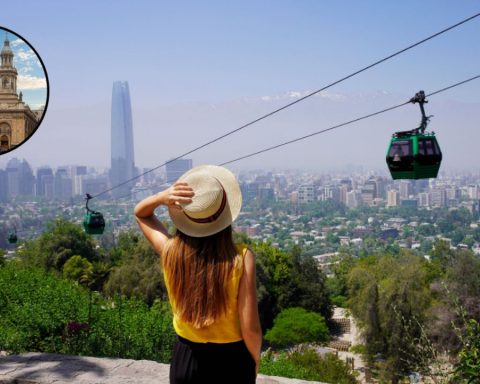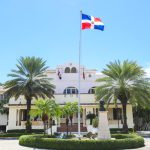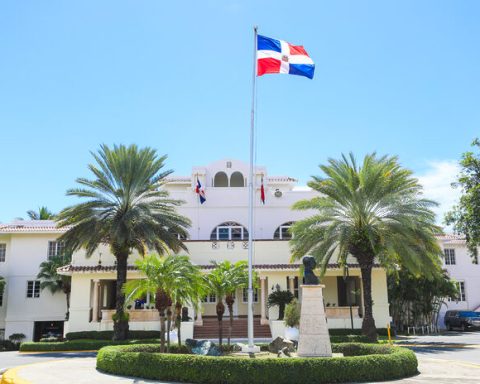After 30 days of negotiation, Congress managed to reach an agreement and approve the constitutional reform that enables the new constituent process. The vote in the Chamber made it clear that the pledged word – a phrase that is fashionable today in the political circle – prevailed. On the chamber screen, names were seen in green from the PC to the UDI. All aligned to start the constitutional discussion. Deputy Catalina Pérez, former president of Revolución Democrática and current second vice president of the Chamber of Deputies and Deputies, was part of the negotiations and witness to something that has not been seen in the public sphere for a long time: the politics of agreements.
After having been part of the discussion in the commission, the Frente Amplista deputy was very confident about what would happen in the room. The discussion, prior to the vote in the lower house, was expected to end at about four or five in the morning, but everyone’s willingness – plus some regulatory measures taken by the commission – managed to end the session at 11 of the night. On the one hand, the agreement between the parties demonstrated solidity and, on the other, the time that the subject has been debated was a factor that promoted the marathon work from the commission.
The reason that the political forces lined up in such an orderly manner to the agreement, believes Pérez, is because “we are clear that the current Constitution is incapable of establishing an order for the governance of the coming years, it is not possible to respond to the demands of citizenship with an instrument that is exhausted”. In addition, he believes that lessons have been learned from both sectors: “Some have understood that we cannot have a programmatic Constitution and others have understood that we cannot continue with one with locks.”
What about the other parties that are not part of the agreement? The Republican Party presented more than 40 indications. Do you think there was an intention to delay the process?
I think there are some here who were not interested and are not interested in generating a democratic dialogue. I think the far right is looking to boycott the creation of a new Constitution through Team Patriot on the street and the Republican Party in Congress. They do it when they decide not to participate in the dialogue between the parties with a view to generating the agreement, they do it with their statements in the press when they entrap a debate in the Constitution Commission, accusing irregularities that do not exist or presenting unfounded censorship. I think that this is also a symptom of something that has become increasingly clear: today there are political forces that are not interested in dialogue, that are not interested in being part of the agreements that allow us to move forward, there are political forces that are not interested in It is interesting to recognize the position of the other as a legitimate position, which has the right to be heard and debated. That is very dangerous. When Gonzalo de la Carrera is violent, like yesterday, when Team Patriota is violent, when the Republican Party doesn’t let some congressional commissions work, that opposes the legitimate expression of differences. That is opposed to democracy, to tolerance, and that ends with what we saw in Brazil a couple of days ago.
How was the mood within the commission? Before Deputy De la Carrera harassed Deputy Diego Schalper, there was a meeting between Deputy Sánchez (Republican) and the president of the Commission Karol Cariola.
The censorship of President Karol Cariola was a totally unjustified action that only sought to make a political point against the president and delay the debate in the Constitution commission. That I think becomes more evident. The groundlessness of censorship, when it is lost by nine votes to one. I would like to pause to strongly condemn the violence with which Deputy De la Carrera acted in response to the rejection of censorship. This is the type of actions that are outside the democratic framework. For the same reason, given that this is a reiterated attitude of the deputy, as the board of directors, we decided to take this case to the ethics commission so that his actions could be sanctioned because we cannot normalize a climate of intolerance and extreme polarization. People need a lot more from us. Now, the National Congress has a structure that is often complex to build or advance on issues that are transcendental, but it also has, and I think it is something that was expressed in the Constitution Commission, the political forces that understand that, or we defend Democracy together or we all sink without it. Forces that are capable of dealing with their differences, putting them aside and moving forward for Chileans. This force has to lead to agreements on the constituent process, but also on civilizational minimums, social security base floors that allow Chileans to be calm in matters of pensions, health, security and education. That is to say, to cooperate to generate minimum certainties for the family, to advance in well-being. From another way, the disconnection with reality with 99% of Chile is going to continue to worsen.
One of the most important criticisms that has been made of the upcoming constituent project is the lack of citizen participation and the legitimacy of the Agreement for Chile. How are these criticisms resolved? Will the choice of experts influence the choice of experts?
We are convinced that access to information and citizen participation are elements that provide stability and legitimacy to the constituent process and are not intended to benefit one or another political sector. I believe that this challenge remains open in the discussion of the regulations that will govern the Constitutional Council, for example, and there I believe that we have to continue contributing with some ideas that, unfortunately, we could not include in the reform and were not considered when signing the deal.
Misinformation and disaffection of the people with these processes is a problem for democracy and cannot be the stumbling block, once again, for the success of the process. Now, regarding the experts and the 100% elected constitutional body, our position during the agreement was clear. We would have liked a constitutional process that, like the previous one, would have been 100% elected in all its bodies. Now, beyond the names of the experts and their powers. I believe that the fundamental thing in this process is to understand that the leading body in the elaboration of the new constitution must be the Constitutional Council, which is precisely the body elected by the citizens. I believe that when we understand the leading role that citizens must have in the process, we also understand the need or ensure the need to finally succeed in the result.
Are the leftists already in conversations regarding the experts they want to propose?
It is a conversation that we have not had institutionally in the official parties yet in the Chamber of Deputies and Deputies. But I think that it is important that, beyond the will of each of the parties, we are able to guarantee the complete diversity of the experts that make up the Commission. I believe that there must be representatives from all the worlds that make up our society with a minimum standard for the purpose of guaranteeing a certain expertise in the world of work, in the environmental world, in the world of Human Rights, in the world of the guarantee of social rights, in the world of the guarantees of civil and political rights. I think we need a look whose expertise is not given only by the number of university semesters you have, but whose expertise is given by the political and social experience you have on your body. I think that the diversity of the expert commission is going to be transcendental, always understanding that the leading role has to be in the constitutional council, since they are the representative body of the citizenry.
At the beginning of the week, Servel published a statement expressing the concern caused by the fact that the autonomous institutions were not included in the reform that enables the new constituent process. Is it a worrying factor?
I believe that the agreement, regarding the constitutional bases, is not an agreement regarding the entire content of a new Constitution. It is an agreement of base floors of which we talked, of minimum contents that the new constitution has. In no case does it seek to exhaust the constituent debate. The autonomy of the bodies that are now autonomous was not questioned. I hope it is not called into question today. The fact that it is not contained within the borders is not an indication of concern regarding the maintenance of said autonomy.
















